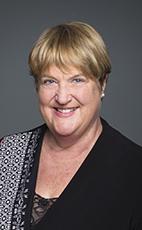Madam Speaker, I am really thankful for the opportunity to talk about a question that I asked on March 8. I am going to read the question and the response, because it is critical for people to understand why I am so concerned with the response.
The question was as follows:
Mr. Speaker, a recent lawsuit by the SSN is looking to declare aboriginal title over private property. The Premier of British Columbia responded that government must defend with conviction the sanctity of private land and private land rights. Furthermore, she told the people of Kamloops she has their backs.
There was no such message from the federal government. Will the justice minister stand shoulder to shoulder with the premier of B.C. and defend private property ownership?
This is absolutely critical. I would ask members to listen very carefully to the response that I received from the Minister of Justice and Attorney General of Canada. She thanked me for the question, and then stated:
Our government is committed to developing a substantive nation-to-nation relationship with indigenous peoples in this country, sitting down and working jointly, based on recognition and moving forward in order to ensure that indigenous communities can have an improved quality of life, can settle, ultimately, the land question, and do it based on respect and based on the United Nations Declaration on the Rights of Indigenous Peoples.
I think members can understand why this answer was very concerning. The minister talked about the government's mandate, which the Liberals have been very clear about. They have said that they have a goal of settling long-standing land claim issues. That is an important goal, and we recognize that it is an important goal, but what she did not acknowledge is that as they go about that process, there will be an impact on people. It is really important to talk about that. I know that a tepid response was given to this particular lawsuit and that they will be responding to it, but it is important to recognize that this is going to have very far-reaching ramifications.
As well, the ruling in the Daniels case today is going to add an additional complexity to the job the government has ahead of it, but it is also going to have an impact on private property and sometimes small businesses. I can give a couple of examples: after the Tsilhqot'in decision, I received a very powerful letter from a man who is 70-some years old. He had a trap line and had invested a lot of money in his small business. Ranchers in northern British Columbia will be very significantly impacted due to a settlement of one of the treaties.
The bottom line is the government is going to have to be proactive and absolutely deal with the long-standing issues, but it will also have to deal with private property rights and local community small business owners.

